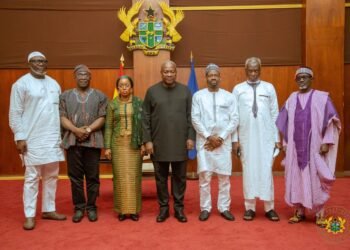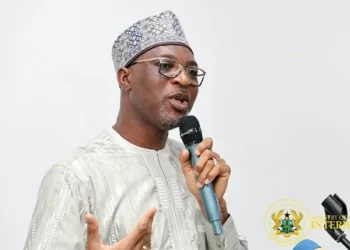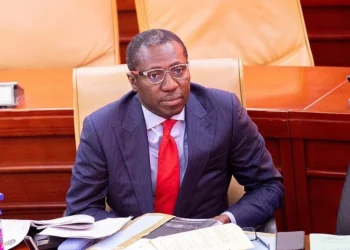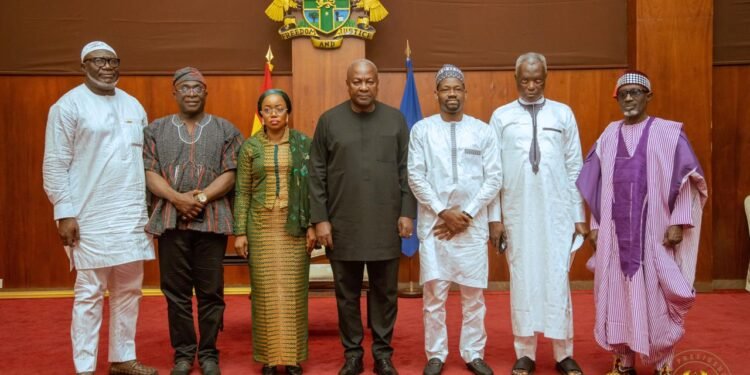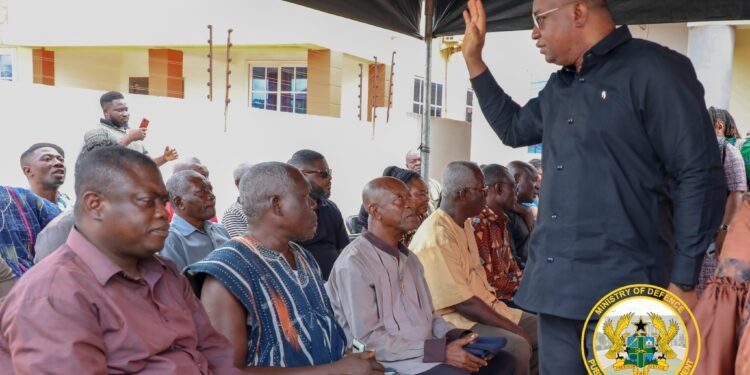The Member of Parliament (MP) for Yendi, Hon. Abdul-Fatawu Alhassan, has raised constitutional concerns over Ghana’s recent memorandum of understanding with the United States on deportations, insisting that the deal requires parliamentary ratification under Article 75 of the 1992 Constitution.
His position adds new weight to an ongoing national debate over the legal validity of the agreement, which has already triggered strong reactions across political and legal circles.
Hon. Alhassan’s intervention follows clarification from the Minister of Foreign Affairs, Samuel Okudzeto Ablakwa, who explained that the memorandum is not a binding treaty but an executive agreement that does not need immediate parliamentary approval.
Despite this, the Yendi legislator stressed that Parliament’s oversight role cannot be brushed aside, particularly when the agreement directly affects Ghana’s sovereignty and international commitments.

“I think it is something that has to come to Parliament for us to ratify because it is an international agreement and international agreements can come in various shapes and forms. It can be by MoU, it can be by any means or form.
“I don’t think the nature or the structure of it should excuse it from being captured under Article 75. So I feel that agreement [should come to Parliament]. It is not too late”
Hon. Abdul-Fatawu Alhassan, MP for Yendi
Hon. Alhassan maintained that the agreement should not exempted from constitutional scrutiny.
Deportations Spark Fresh Debate
The MoU has drawn significant public interest after Ghana received 14 deportees from the United States, including individuals of Nigerian and Gambian nationality.
Critics, such as former Deputy Foreign Affairs Minister Charles Owiredu, have demanded more transparency and urged greater consultation with parliamentary oversight committees, especially the Security and Intelligence Committee.

Hon. Alhassan argued that although Parliament is currently in recess, the agreement could still be presented when the House reconvenes, stressing the importance of legislative ratification even if it is done retroactively.
“I foresee that when Parliament comes back from recess this may be brought for post facto ratification,” he said.
Meanwhile, the Minister of Foreign Affairs, Hon. Samuel Okudzeto Ablakwa has disclosed that Ghana will in the coming days receive an additional 40 West African deportees from the United States, a development likely to deepen calls for clarity on the government’s handling of the matter.
Chief Justice Eligibility Debate
Hon. Alhassan also weighed in on a parallel legal controversy involving the former Chief Justice, Gertrude Torkornoo, who mounted a judicial review application at the High Court challenging her removal by President John Dramani Mahama on September 1, 2025.
Justice Torkornoo insists the President acted outside his constitutional remit, arguing that Article 146 – which requires a formal inquiry before a Superior Court judge can be removed – was not followed.
Responding to debates around the constitutional provisions guiding the office of the Chief Justice, Hon. Alhassan emphasised that the qualifications for the position are identical to those required of a Supreme Court judge.

He elaborated that under Articles 128(1) and 128(4) of the Constitution, “all justices of the Supreme Court are automatically qualified to assume the role of Chief Justice,” without the need for separate criteria.
According to him, this interpretation affirms that the Chief Justice does not require any special qualification beyond what the law prescribes for judges of the Supreme Court. “This tells you that you require the same qualifications,” Alhassan concluded.
As these legal and constitutional debates intensify, both the deportee agreement and the Chief Justice case are expected to test Ghana’s institutional frameworks in the weeks ahead, with Parliament and the judiciary poised to play central roles in shaping their outcomes.
READ ALSO: Osebo Reveals Meeting Destiny Helper Through Kayayei Work




